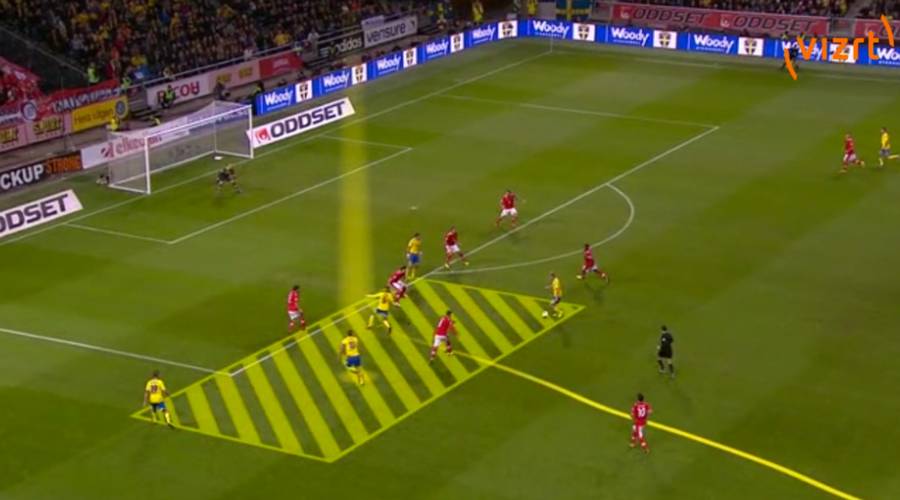

What is a Soccer Analyst?
The ‘football/soccer analyst’: it’s a term relatively new to the game’s lexicon. In days gone by, most of a club’s forethought with regards to matchdays will have been internal, conducted almost entirely in reference to their own squad.
In the modern era, however, it is essential that they take in the minutiae, not just of their own team’s performance, but of their opposition’s too – a need which the increasing pervasiveness of technology has facilitated.
In recent years, the game has turned towards quantifiable data in order to self-improve, leading to a whole host of fresh job opportunities for those with an aptitude for scrutinizing player and team performance. Thus, the football analyst has become synonymous with the modern-day club.
The day to day role involves watching videos, bags of them. As an analyst, you’ll probably spend less time on the sunlit oasis of the football field and more in front of the artificial light of a computer screen – but the fruits of your labor will be just as rewarding.
In pouring over footage of both their club’s performance, and their upcoming opponents’, analysts are a vital cog in the machine of any football team. The hierarchies of top clubs are adopting as holistic approach as is within their means in their matchday preparation, a trend which has culminated in a huge increase in both the number of analysts employed and in the job spec of the analysts themselves.
The full extent of the role the analyst plays in the modern football/soccer club was brought to widespread public attention during the ‘Spygate’ palaver of January this year, an incident in which it was revealed Leeds boss Marcelo Bielsa has used clandestine tactics to monitor upcoming opponents’ training sessions.
In a sensational press briefing, the Argentine revealed the extent of the research his Leeds United staff undertook prior to facing each and every opponent. He showed an awe-struck room of journalists the sheer volume of footage Leeds United had on file of both individual opponents and teams.
Then he explained how the findings the analysts had drawn from these videos were used to form tactical profiles of Leeds’ upcoming opposition, profiles which he and his coaching staff would use to create a suitable game plan.
While Bielsa – a coach famed for his obsessive attention to detail – may be a standout case, his approach is indicative of a widespread trend in football. In what is a high-risk venture, marginal gains are absolutely crucial in succeeding in football. Any nugget of knowledge, however seemingly inconsequential, can be the difference between victory and defeat.
Take Trent Alexander-Arnold’s now-iconic corner routine in Liverpool’s 4-0 semifinal victory over Barcelona, for example. While no one could have foreseen the full-back’s genius slice of opportunism that night, analysts picking apart the performances of Liverpool’s Catalan opponent’s had noticed that they were slow in organizing themselves when defending set-pieces. The Anfield ball-boys were subsequently informed to return the ball quickly when it went out of play. The rest is history.
The observation which lead to this goal might seem anecdotal, something which one might make a passing comment on when watching a game – but in reality, it was probably the product of hundreds of hours of work for an analyst.
The discovery of Barca’s unhurried defensive set-piece preparation will have arisen as part of a meticulous process, one which involved hours of playlist making and dissection. The data the analysts obtained will then presumably had to have been registered on Liverpool’s internal database. After much discussion between members, the analysis team will then have relayed the information they have gathered to the coaching staff and stressed that they thought this particular weakness could be exploited. While the Liverpool players’ steel and skill ultimately won them the game that night, it was the analysts who laid the foundations.
Being an analyst might not be the most glamorous job in football – but, in the modern climate, it’s surely one of the most important. They are an indispensable aspect of the contemporary club; they can make sense of a chaotic game and see things that others can’t. Ingenuity of this kind is what has always driven the game forward.
Written by Adam Williams
Find more about soccer/football analysis in one of our courses about this subject: https://www.hub-soccer.com/course-category/soccer-analysis/
Follow us on Facebook!
Categories
Latest Courses
-
9 Lessons
-
1 Lesson
-
6 Lessons
You May Also Like
- Blog
- August 1, 2022
- Blog
- June 3, 2022
- Blog
- May 27, 2022
Developed by Brandit Digital Media Services.





